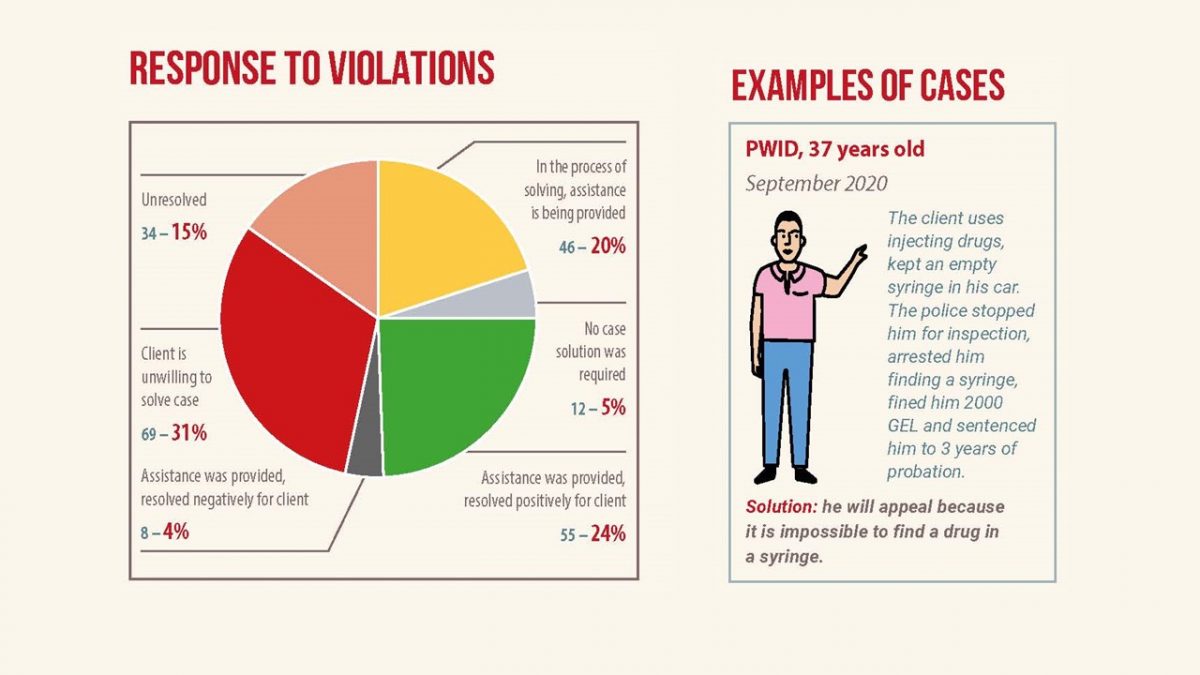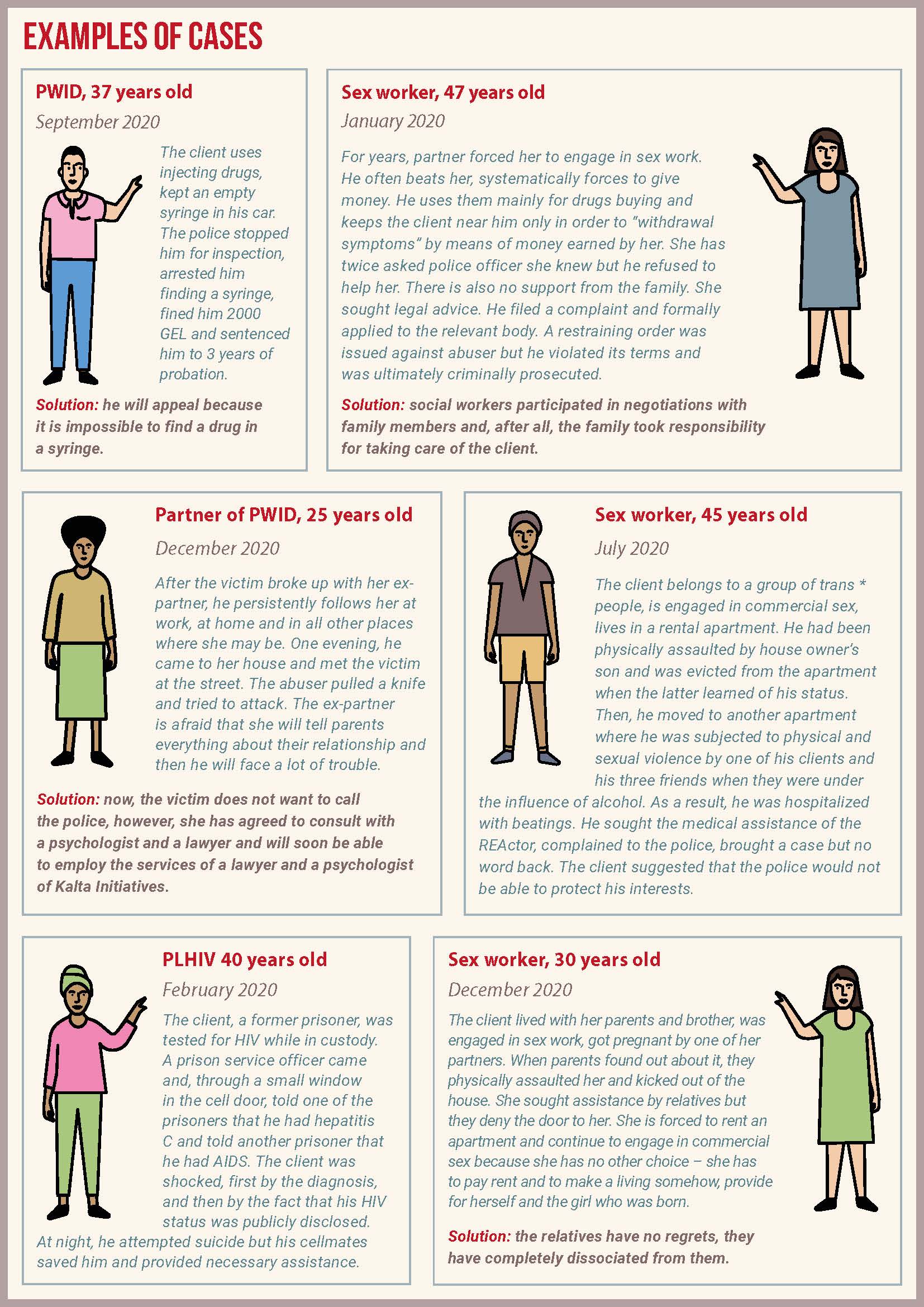In 2020, 225 appeals from representatives of key groups about violations of their rights and discrimination were registered in Georgia.
Out of the 225 applications, 85% were qualified by the professional lawyer coordinating the implementation of REAct at the country level as such that do show signs of human rights violations. However, 34 cases do not have such signs but record the need for legal advice to clients on everyday issues.
Cases resolution status at the end of 2020
Of all 225 appeals, in 28% of cases response and legal assistance were successfully provided by a REACTOR or a professional lawyer, while in 24% of cases after receiving legal assistance, the situation was resolved positively for the client.
Medical – social assistance to the victim is provided in the form of consultations, redirection, and escort to partner organizations or health facilities to receive other necessary services for prevention and treatment.
Primary legal aid by REActors is to advise on legal matters and assist in the preparation of complaints or applications. However, both the victims and REActors themselves (also being representatives of vulnerable groups) are afraid to interact with police officers yet again because of the negative experience of such interaction in the past as well as due to fear for their safety.
Legal support of the case by REActor, first of all, is in intermediation between the victim and the perpetrator. In this way, most cases are resolved where the perpetrator is a medical professional, a representative of the education sector or other services as well as neighbors and family members. REActors give an enlightening talk with the perpetrator with a view to educating about HIV and reduce stigma. If the client is ready to defend his rights or he needs the protection of a professional attorney (cases on criminalization) then such client is redirected to specialized lawyers of the State free legal service.
A fairly large part (31%) of cases remained unanswered since the client himself refused to take further actions to protect his rights, due to the fear of interaction with law enforcement agencies and mistrust of the law enforcement system as a whole. Victims also prefer to endure systematic violations of their rights rather than disclose during the proceedings their HIV status, sexual orientation, or membership of key groups.
It is also important to note that 15% of cases were left unanswered due to a lack of resources (human, financial) in organizations for an effective response. The demand for legal services for representatives of key groups remains incompletely covered, and this gap must be taken into account when planning projects and interventions in countries for the future.
At the time of writing the report, 20% of cases are in the process of providing assistance and active work with the client. Therefore, it is not yet possible to assess what the outcome of events will be.



